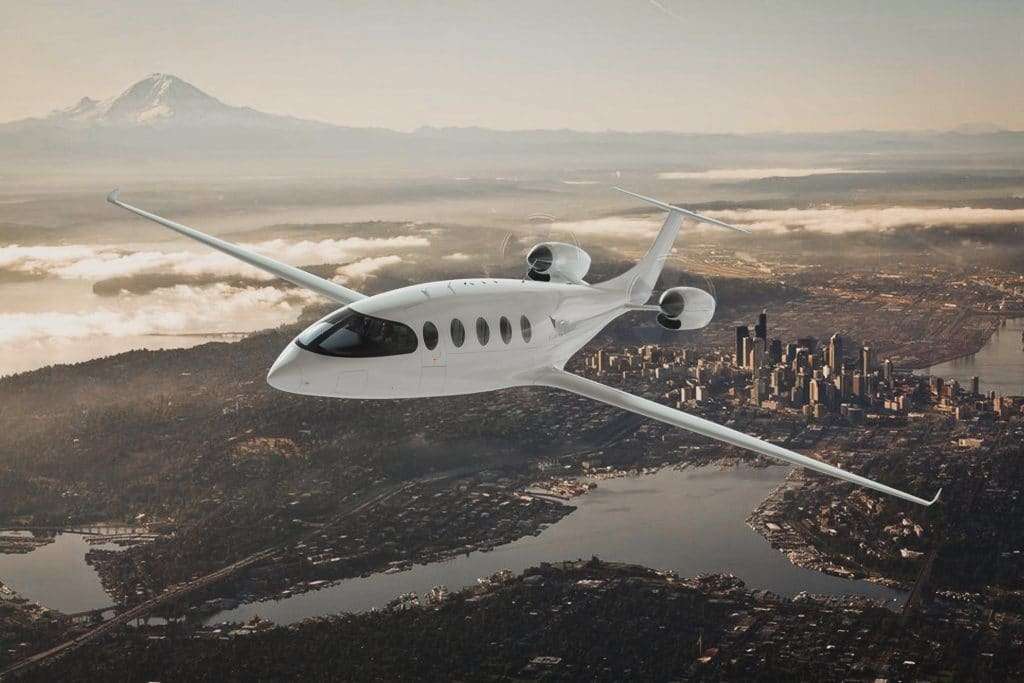A new survey shows more than 60 percent of consumers would pay more for greener air travel options.
Consumer attitudes about aviation’s carbon footprint, the future of flight, and safety are highlighted in a new comprehensive survey commissioned by Ansys and released at the Paris Air Show this week.
The Sustainable Aviation Survey reveals that more than 60 percent of consumers are concerned about carbon dioxide (CO2) emissions from aircraft. The survey also delves into consumer concerns regarding aviation-related air pollution and their expectations for next-generation air travel.
Notably, the concerned consumers say they are willing to pay more for greener air travel. The aviation industry produces about 2 percent of total global emissions.
Ansys commissioned the survey via Atomik Research, an independent creative market research agency, to conduct an online survey among 6,029 respondents from the United States, the United Kingdom, France, and Germany.

“Consumer research is essential as the aviation industry transforms to meet the demands of consumers and needs of our planet,” Walt Hearn, senior vice president of worldwide sales and customer excellence at Ansys, said in a statement.
With the goal of achieving net-zero carbon emissions by 2050, leaders and organizations in the global aviation industry are turning to Ansys’ digital transformation technologies. These technologies are being used by aircraft manufacturers to develop more efficient aircraft, engines, and propulsion systems.
Alternative fuel
According to the survey, nearly 70 percent of the consumers polled stated that they would trust alternative fuel sources such as sustainable aviation fuel (SAF), electric, hybrid-electric, or hydrogen-powered aircraft if these technologies were extensively simulated and tested using established methods applied to aircraft safety.
A majority of consumers, 63 percent, are concerned about CO2 emissions and are willing to pay extra for greener air travel (65 percent). Within the next five years, 46 percent of consumers said they would be willing to travel in an aircraft powered by sustainable aviation fuel (SAF), 36 percent in an electric aircraft, 38 percent in a hybrid-electric aircraft, and 38 percent in a hydrogen-powered aircraft.
And, the research found, approximately one-third of consumers (32 percent) are more likely to choose airlines committed to reducing their carbon footprint.
The survey also revealed that 82 percent of respondents would feel comfortable flying in next-generation aircraft that can reach speeds of 3,500 mph, compared to standard aircraft that fly at an average of 560 mph. Consumers value shorter flight times, with 50 percent of respondents reporting that they have refrained from traveling to certain destinations in the past due to long flights.

More than half of the consumers surveyed (57 percent) expect to fly in an electric vertical take-off and landing (eVTOL) aircraft at some point in their lives. They believe eVTOL aircraft could provide benefits for daily commuting, including a reduction in stress (27 percent), road rage (26 percent), and carbon footprints (35 percent). Additionally, 47 percent of respondents are open to flying in an autonomous plane during their lifetime.
Consumer concerns
However, the survey also uncovered concerns. The top worry for 57 percent of consumers interested in autonomous flights is the absence of a pilot who can respond to potential external or internal issues, such as turbulence and flight control.
Regarding alternative aircraft, 50 percent of customers expressed concern about the unproven nature of technologies like SAF-powered planes, while almost 40 percent feared a potential technology failure.
“Ansys’ simulation solutions not only help engineers build cleaner and smarter systems, but also help manufacturers establish trust with consumers,” Hearn said. “By virtually testing and verifying new technologies with simulation, aircraft manufacturers can demonstrate the viability of sustainable alternatives, build confidence where there is uncertainty, and expand the possibilities for next-generation air travel safely and efficiently.”
Related on Ethos:



